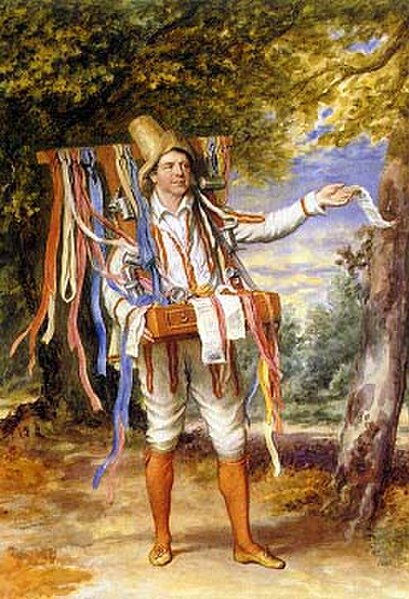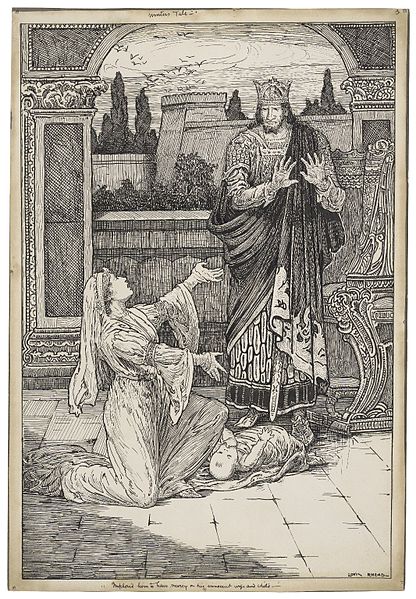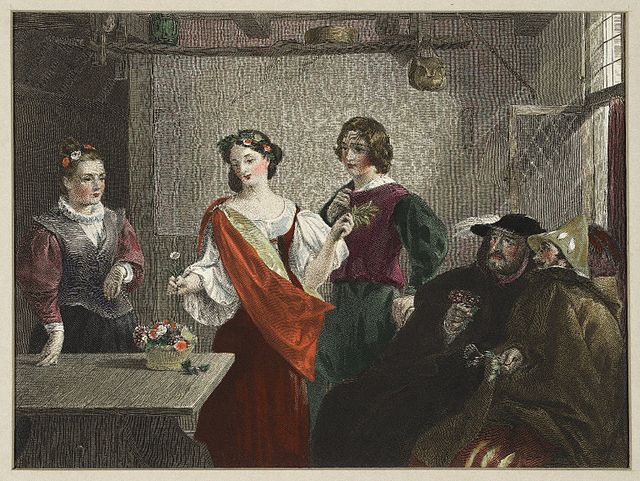The Winter's Tale (1910 film)
The Winter's Tale is a 1910 American silent short drama produced by Thanhouser Company. The plot is an adaptation of The Winter's Tale by William Shakespeare and requires fore-knowledge of the plot in order to understand the condensed one reel work. The film focuses on the conflict arising from two Kings, one of Bohemia and one of Sicily, during a meeting. Queen Hermione enrages her jealous husband, Leontes, by entertaining Polixenes. Leontes decides to kill him with poison, but the plan is foiled by the courtier tasked with the assassination. For this, Leontes imprisons his wife. Hermione gives birth to a daughter and Leontes orders the baby to die out in the wilderness. Hermione is then brought before the court and apparently dies after interrogation. Fifteen years pass and Polixenes confronts and then secretly follows his son, appearing as he declares his intention to marry a shepherdess. The two lovers seek protection with Leontes, the King of Sicily. Mourning and repentant for his past actions, Leontes learns the shepherdess is his daughter and blesses the marriage of the lovers. The royal party goes to see a statue of the late queen Hermoine which is revealed to be alive. The cast includes Anna Rosemond, Frank H. Crane and Martin Faust, but the directorial and production credits for the film are unknown. The production was a success for the Thanhouser Company and the film was met with positive reception following its May 27, 1910 release. The film survives in the Library of Congress, but it is missing the final scene of the production. The surviving print suffers from significant deterioration.

A frame from the film
The Winter's Tale is a play by William Shakespeare originally published in the First Folio of 1623. Although it was grouped among the comedies, many modern editors have relabelled the play as one of Shakespeare's late romances. Some critics consider it to be one of Shakespeare's "problem plays" because the first three acts are filled with intense psychological drama, while the last two acts are comic and supply a happy ending.
Act II, scene 3: Antigonus swears his loyalty to Leontes, in an attempt to save Leontes' young daughter's life. From a painting by John Opie commissioned by the Boydell Shakespeare Gallery for printing and display.
John Fawcett as Autolycus in The Winter's Tale (1828) by Thomas Charles Wageman
An ink drawing of Act II, Scene iii: Paulina imploring Leontes to have mercy on his daughter, Perdita. Illustration was designed for an edition of Lamb's Tales, copyrighted 1918.
An engraving of Florizel and Perdita by Charles Robert Leslie.





